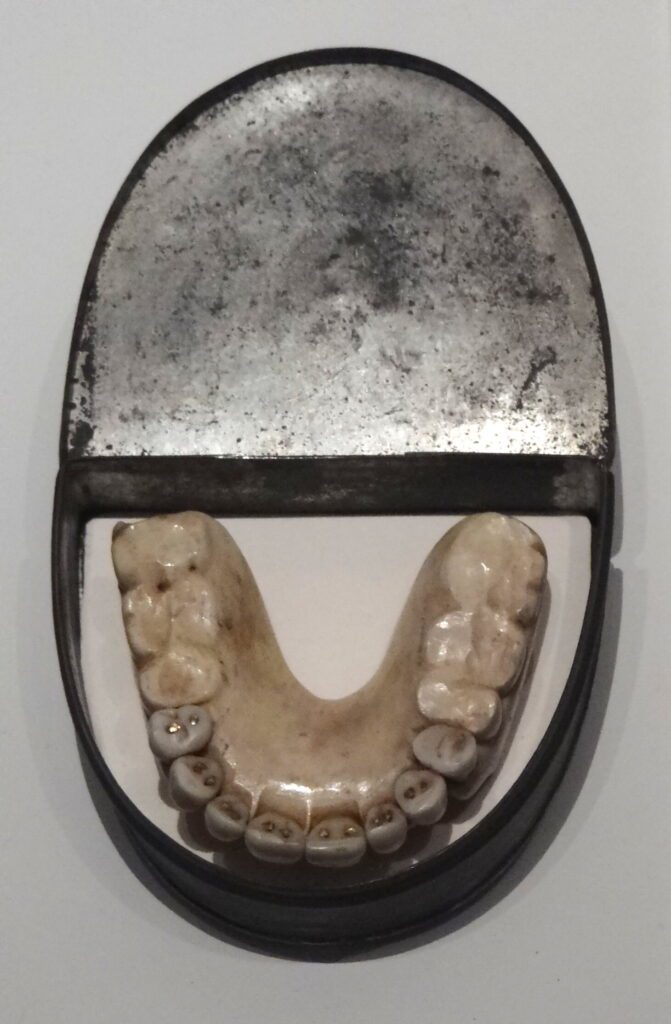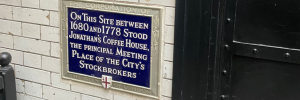Claudius Ash, born in Bethnal Green, London, on 2 March 1792, was far from an ordinary craftsman. Though he followed his father into the goldsmithing and silversmithing business, it was his revolutionary work in dental manufacturing that would make him a prominent figure in dental history.
Early Life and Family
Ash, the second son of Sarjeant Ash and Lydia Ash (nee Smith), grew up in an environment steeped in craftsmanship. On 11 March 1813, he married Sarah Butler, and they had eight children. Remarkably, four of their offspring, along with other descendants and members of the Ash family, went on to engage in dental manufacturing or practise as dental surgeons. Ash’s family were devout members of the Catholic Apostolic Church, also known as the Irvingites. Ash lived a fruitful life, passing away in London on 3 November 1854.
From Goldsmith to Dental Manufacturer
Working initially in the firm of Ash & Sons, situated at 64 St James’s Street, Westminster, Claudius Ash had already established himself as a skilled craftsman by the time he was called upon to apply his talents to a new endeavour. Around 1820, he was tasked with creating a set of dentures, marking a turning point in his career and, indeed, the history of dentistry.

Until then, dentures were primarily fashioned from hippopotamus or walrus ivory, which discoloured over time, or human teeth extracted from corpses – including battlefield casualties. These teeth, known as ‘Waterloo teeth’, had clear drawbacks.
Ash used his goldsmithing skills to craft false teeth out of porcelain, mounted on gold plates. These new dentures, complete with gold springs and swivels, were not only more aesthetically pleasing than their predecessors but also superior in function. Ash’s innovative approach to denture construction laid the foundation for his new enterprise and catapulted him to the forefront of dental manufacturing in Britain.
A Flourishing Enterprise
Ash’s venture was initially based in Broad Street, now Broadwick Street, in London. His high-quality dentures and dental appliances quickly gained recognition, and his business expanded rapidly.
By 1840, Claudius Ash had taken his innovative approach to dental manufacturing a step further, pioneering the production of “mineral teeth”. This ambitious move marked a significant development within the industry, the impact of which cannot be understated. This new venture provided an alternative to the problematic ‘Waterloo teeth’ and the discolourable ivory options, offering a solution that was not only more ethically palatable but also functionally superior and aesthetically convincing.
The success of the mineral teeth production was transformative for Ash’s enterprise. The escalating demand for these innovative prosthetics sparked considerable expansion for the company. It led to the establishment of a new manufacturing facility on Anglers Lane, a location that would soon come to hold a notable position in the annals of dental manufacturing.
Ash’s Anglers Lane factory rapidly became a thriving hub of dental manufacturing, owing largely to the success of the mineral teeth. This manufacturing base’s growth was meteoric, and it soon claimed the title of the largest false-teeth factory in all of Europe. This was no small feat given the competitive nature of the industry during the time. This substantial factory stood as a testament to Ash’s trailblazing endeavours in dental manufacturing, embodying the transformative power of innovation and entrepreneurship.
The expansion to Anglers Lane represented more than just a physical growth for the company; it marked a shift in scale and influence in the dental industry. With the introduction of mineral teeth and the establishment of the largest false-teeth factory in Europe, Ash’s business was no longer just a significant player in the British market. It was setting the standard for dental manufacturing across the continent and beyond.
By the mid-nineteenth century, Claudius Ash dentures and dental equipment dominated the European market.
Over time, Claudius Ash & Sons evolved into an international company, extending its reach beyond Britain’s shores. In 1924, the company merged with de Trey & Company, forming the Amalgamated Dental Company, which is now a division of Plandent Limited.
Claudius Ash: A Legacy in Dentistry
Claudius Ash’s story is a testament to the power of innovation and craftsmanship. A goldsmith by trade, he revolutionised a vital aspect of healthcare, improving the quality of life for countless individuals. His work elevated denture manufacture to new heights, blending artistry with functionality.




